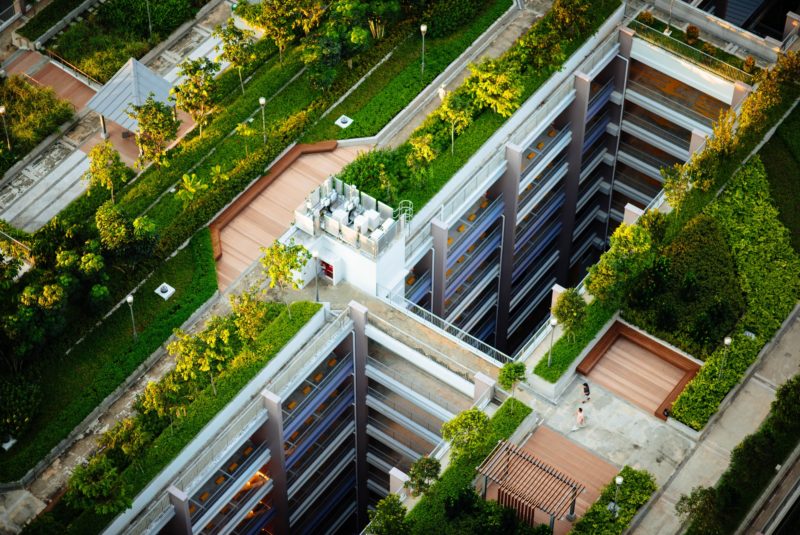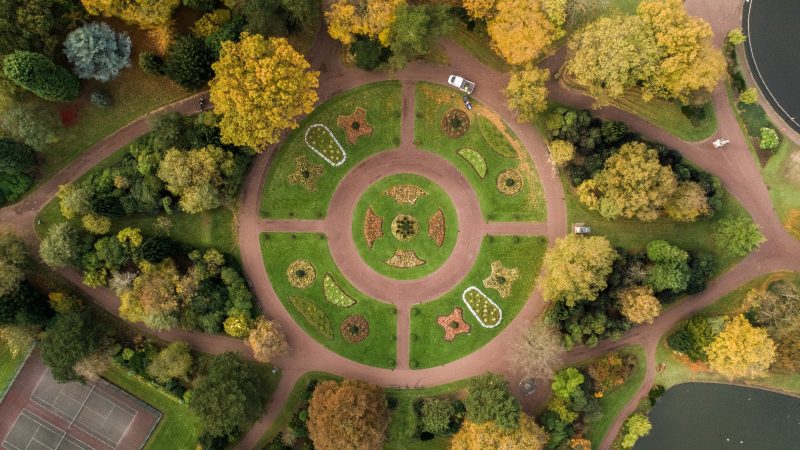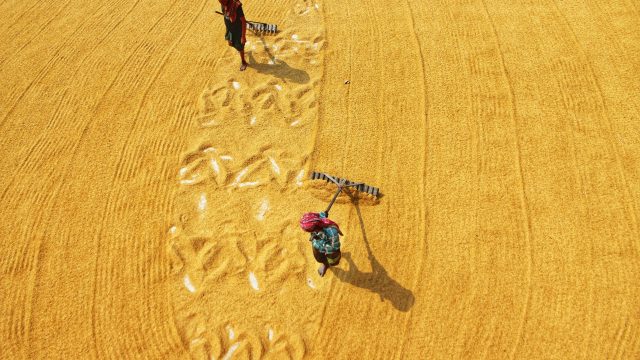Greening the recovery with natural capital accounting
Without good data, governments and public bodies cannot make good decisions - new approaches to ecosystem accounting are needed.

The GEC Insights series is a curated collection of articles at the intersection of environment and economics, each written by leading thinkers from the worlds of business, government and civil society. Part of our Economics for Nature project, they bring together diverse perspectives to answer the question: how can we re-design our economies to protect and restore nature?
Without good data, governments and public bodies cannot make good decisions. A new approach to ecosystem accounting could unlock a Green Recovery from COVID-19 by integrating environmental and economic information to help maximise societal well-being, minimise costs and keep within ecological thresholds.
At the end of 2019, biodiversity loss, climate change and the Sustainable Development Goals (SDGs) were high on the international agenda. Important conferences of both the UN Framework Convention on Climate Change (UNFCCC) and the Convention of Biological Diversity (CBD) were scheduled for 2020, and the UN had declared the 2020s the “Decade of Action” for achieving the 17 SDGs by 2030.
COVID-19 changed all that. The biodiversity and climate conferences were postponed, and all attention was rightly turned to the health emergency and to providing relief to those who had lost their livelihoods. While there were problems and responses were patchy, governments rallied to address the emergency, and over time strategies to combat the pandemic were found. Furthermore, many countries have developed economic recovery packages to restore employment and boost economic growth.
Three features of the response to COVID-19
For us, there were three features of note in the way governments responded to COVID-19, two good and one bad. The good features were firstly the seeking and using of expert advice on how to deal with the health emergency, and secondly the way the science community rapidly came to understand the virus and develop the vaccines that should liberate us from the pandemic. This gives us renewed faith in the willingness of governments to seek, fund and use scientific advice to identify and find solutions in the public interest.
The bad feature, however, was that economic recovery packages have given little, if any, thought to environmental impacts of the proposed investments. State spending on this scale represents a once-in-a-generation opportunity to address long-standing human and environmental challenges such as climate change, biodiversity loss and social inequalities. But so far, study after study has confirmed that most of the proposed 17 trillion of spending announced will have an overall negative impact on the environment.
With the focus mostly on the recovery of jobs and GDP growth, an initial opportunity for change was recognised but lost. Going forward, and with the world able to draw breath and reflect on the past 18 months or so, a growing appetite for change is apparent.
An opportunity for change – Green Recovery
We can and should do something different. We can use the willingness of governments to spend on economy recovery and their renewed interest to seek, fund and use scientific information as an opportunity to make the transformations called for by the Intergovernmental Panel on Climate Change (IPCC) and the Intergovernmental Science-Policy Platform on Biodiversity and Ecosystem Services (IPBES). We can seize the initiative and chart a different course to a more sustainable, resilient and equitable future. This course has become known as a Green Recovery.
“ The COVID-19 pandemic has shown what is possible when the world is facing a health emergency. We must translate the experience of this crisis to deal with other global challenges before they become emergencies too.”
The European Union has led the way on Green Recovery, linking it to the major ecological challenges of climate, biodiversity loss and natural resources that are central to the 2019 European Green Deal. A €750 billion “Next Generation EU” recovery fund was established, designed to reduce the economic and social impact of the pandemic and to make European economies and societies more sustainable, resilient and better prepared for the challenges and opportunities of the green and digital transitions.
Decision-making and natural capital accounting
How can governments best direct spending to simultaneously promote economic, environmental and social objectives? Like the response to the COVID-19 pandemic, information and expert advice is vital for a Green Recovery.
However, at present the environmental and social information available to governments is typically irregular, not systematically organised and poorly funded, especially when compared to well-established economic and financial indicators like GDP, investment rates, stock prices, employment numbers and so on.
Economic institutions at the heart of government like Treasuries, Ministries of Finance and Central Banks need good information to make good decisions. But even if they wanted to account for the environment and social impacts of their decisions, the parlous state of environmental and social data, the inability to easily integrate it with economic indicators, and their conflicting mandates would make that exceedingly difficult.
Enter the newly minted System of Environment-Economic Accounting Ecosystem Accounting (SEEA Ecosystem Accounting). This system standardises more than 30 years of natural capital accounting system development, and was hailed by the UN Secretary-General as significant step towards achieving sustainable development. It provides a way of organising information so that the value of natural capital and ecosystem services can be related to existing economic data. For the first time we have an internationally agreed conceptual framework that allows for the integrated management of the environment and economy to improve social well-being. We also have a great range of existing data, analytical capacity and growing experience in producing natural capital accounts.

Examples from many countries show how accounting can be used for environmental and economic management. From assessing forest management alternatives in Australia to low carbon development options in Indonesia or nature-based tourism in Uganda, green accounting and related modelling demonstrate the benefits of an integrated approach to environmental and economic management.
We now need to translate the theory and experience of early adopters of Green Recovery and natural capital accounting into general practice. If nothing else, the need for a Green Recovery provides an imperative for a speedy global roll-out of the SEEA Ecosystem Accounting.
What next?
Mainstreaming Green Recovery and natural capital accounting into government decision-making is a challenging task. The COVID-19 pandemic has shown what is possible when the world is facing a health emergency. We must translate the experience of this crisis to deal with other global challenges before they become emergencies too.
With the rescheduled UNFCCC and CBD conferences planned for later this year or early next, the “Decade of Action” for the SDGs underway, and governments around the world looking to spend for economic recovery, we have three opportunities to make the case for a Green Recovery and how it could be supported by natural capital accounting. The new respect of governments for expert advice and scientific understand mean there is a real prospect to make lasting change.
To this end, the World Bank, United Nations and Dutch Government have sponsored the “5th Policy Forum on Natural Capital Accounting for Better Decision-Making: Greening the Recovery” which will be held online 15-16 September 2021. The forum will explore the progress and plans for Green Recovery and natural capital accounting across countries and in international initiatives. It aims to realise the potential of those working in these two areas to collaborations and help shape the policies, institutions and priority actions need to make natural capital accounting and a Green Recovery a reality.
- Michael Vardon (Australian National University) and Paul Lucas (PBL)
Those interested in becoming part of the Green Recovery and natural capital accounting community should register to participate in the forum by visiting the website.
This blog emerged from the report “Greening the Recovery to Make it Last” prepared by the PBL Netherlands Environmental Assessment Agency. As part of the report preparation, a range of experts volunteered their time to take part in structured interviews as well as an expert forum for which we are very grateful.


